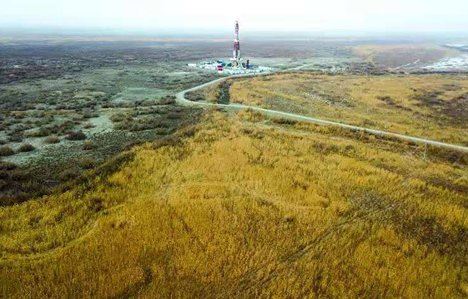
A view of the 8,882-meter-deep oil and natural gas well in Northwest China's Xinjiang Uyghur Autonomous Region. (Photo: Global Times)
China needs to improve its infrastructure to meet its goals of using more of the fuel to power its economy and contain emissions, a senior expert from oil major BP said on Tuesday.
The gas shortage at the end of 2017 exposed some of the problems, BP's group chief economist Spencer Dale told a conference on Tuesday, as the company released the 2019 BP statistical review of world energy Tuesday.
In terms of the gas distribution infrastructure, from long-distance pipelines to last-mile pipelines to storage facilities, China is underdeveloped, Dale said.
China's primary energy consumption growth in 2018 reached its highest level since 2012, posting a 4.3 percent annual expansion, despite slower economic growth, the BP statistical review showed.
In 2017, China's energy growth was 3.3 percent year-on-year while the average growth rate for the past decade is 3.9 percent.
Consumption growth of fossil fuels in China was mainly driven by an 18 percent annual increase in natural gas consumption and a 5 percent gain in oil, the review showed.
However, some experts that believe China's gas consumption may still have some catching-up to do to meet a target of accounting for 10 percent of total national primary energy consumption by next year.
A major breakthrough in natural gas supply is taking place this year as China and Russia are finalizing a massive overland gas pipeline, via Russia's Power of Siberia pipeline. The project will supply 38 billion cubic meters of natural gas a year in the near future.
When asked about how this overland pipeline gas increase will affect China's liquefied natural gas (LNG) import ports, Dale said that the pipeline gas could displace some LNG, although a relatively small amount.
"Relative to total energy imports, [inflows from this new project] are relatively small. They won't affect the big picture," Dale noted.
Overall, China may still have to import very significant amounts of LNG as well, Dale said.
China remains the world's largest energy consuming country, accounting for 24 percent of world energy use and 34 percent of new consumption demand for 2018, the review showed.
China, India and emerging Asia will continue to need more energy to fuel their growth in the years to come, according to Dale.


